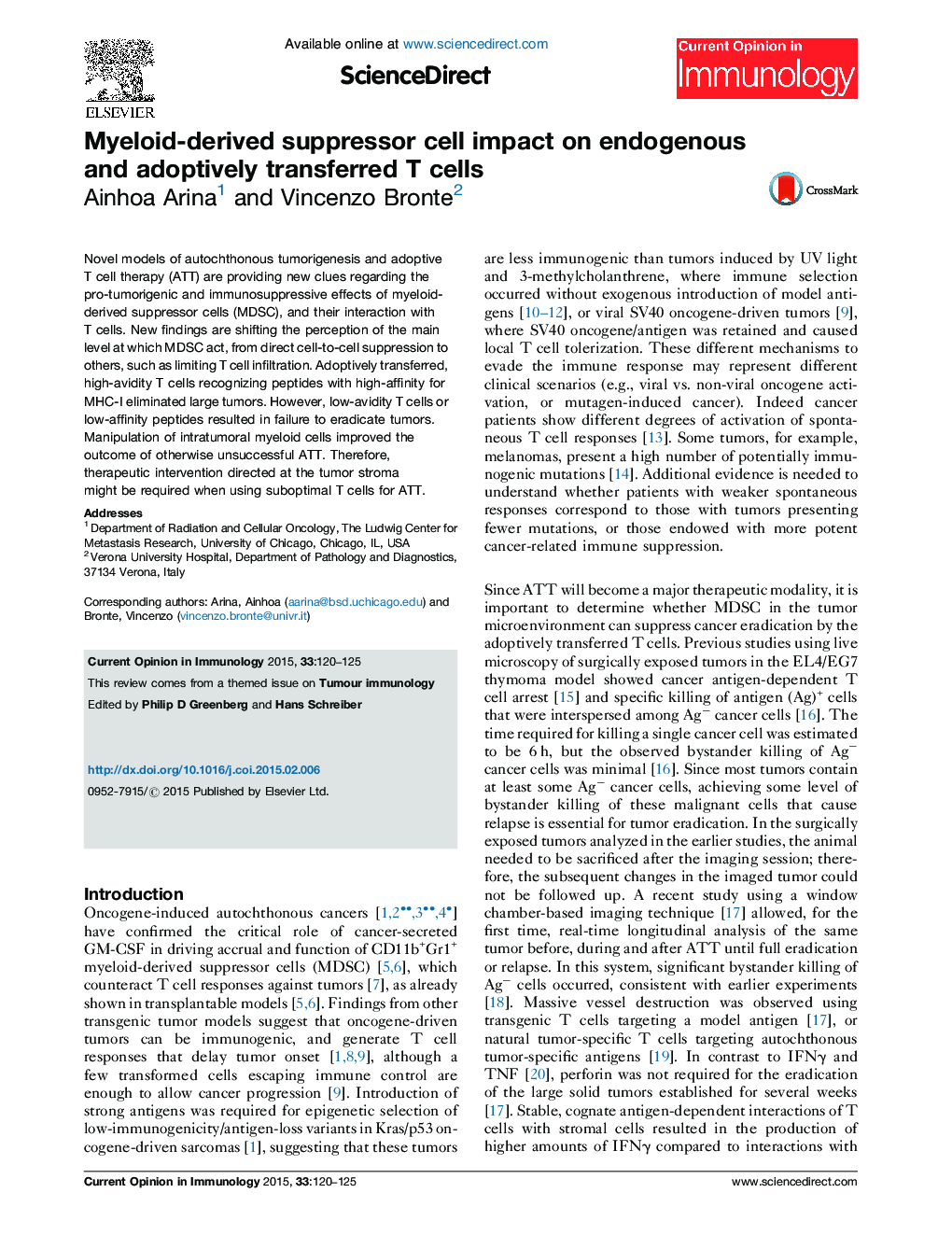| Article ID | Journal | Published Year | Pages | File Type |
|---|---|---|---|---|
| 6115009 | Current Opinion in Immunology | 2015 | 6 Pages |
Abstract
Novel models of autochthonous tumorigenesis and adoptive T cell therapy (ATT) are providing new clues regarding the pro-tumorigenic and immunosuppressive effects of myeloid-derived suppressor cells (MDSC), and their interaction with T cells. New findings are shifting the perception of the main level at which MDSC act, from direct cell-to-cell suppression to others, such as limiting T cell infiltration. Adoptively transferred, high-avidity T cells recognizing peptides with high-affinity for MHC-I eliminated large tumors. However, low-avidity T cells or low-affinity peptides resulted in failure to eradicate tumors. Manipulation of intratumoral myeloid cells improved the outcome of otherwise unsuccessful ATT. Therefore, therapeutic intervention directed at the tumor stroma might be required when using suboptimal T cells for ATT.
Related Topics
Life Sciences
Immunology and Microbiology
Immunology
Authors
Ainhoa Arina, Vincenzo Bronte,
